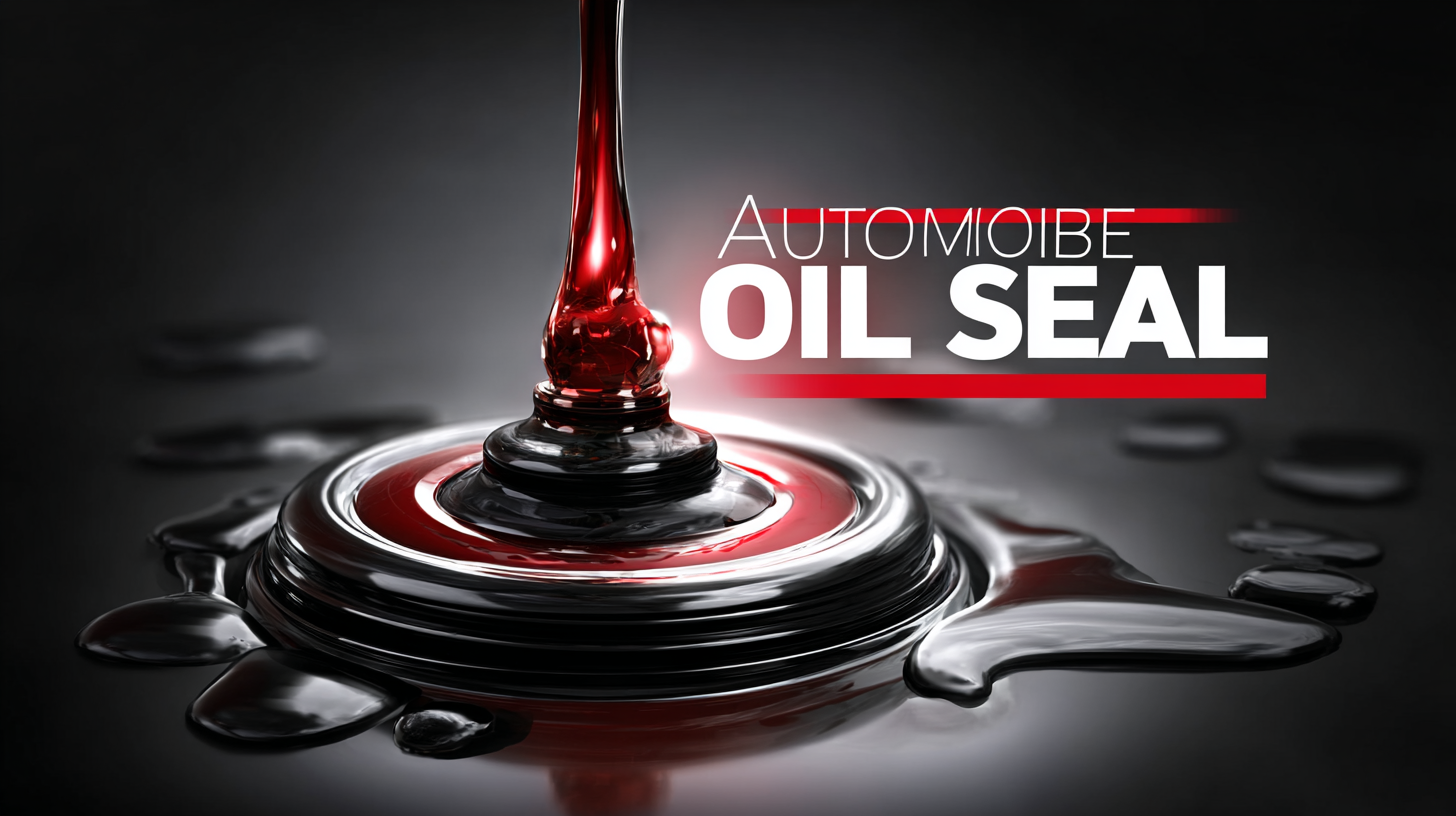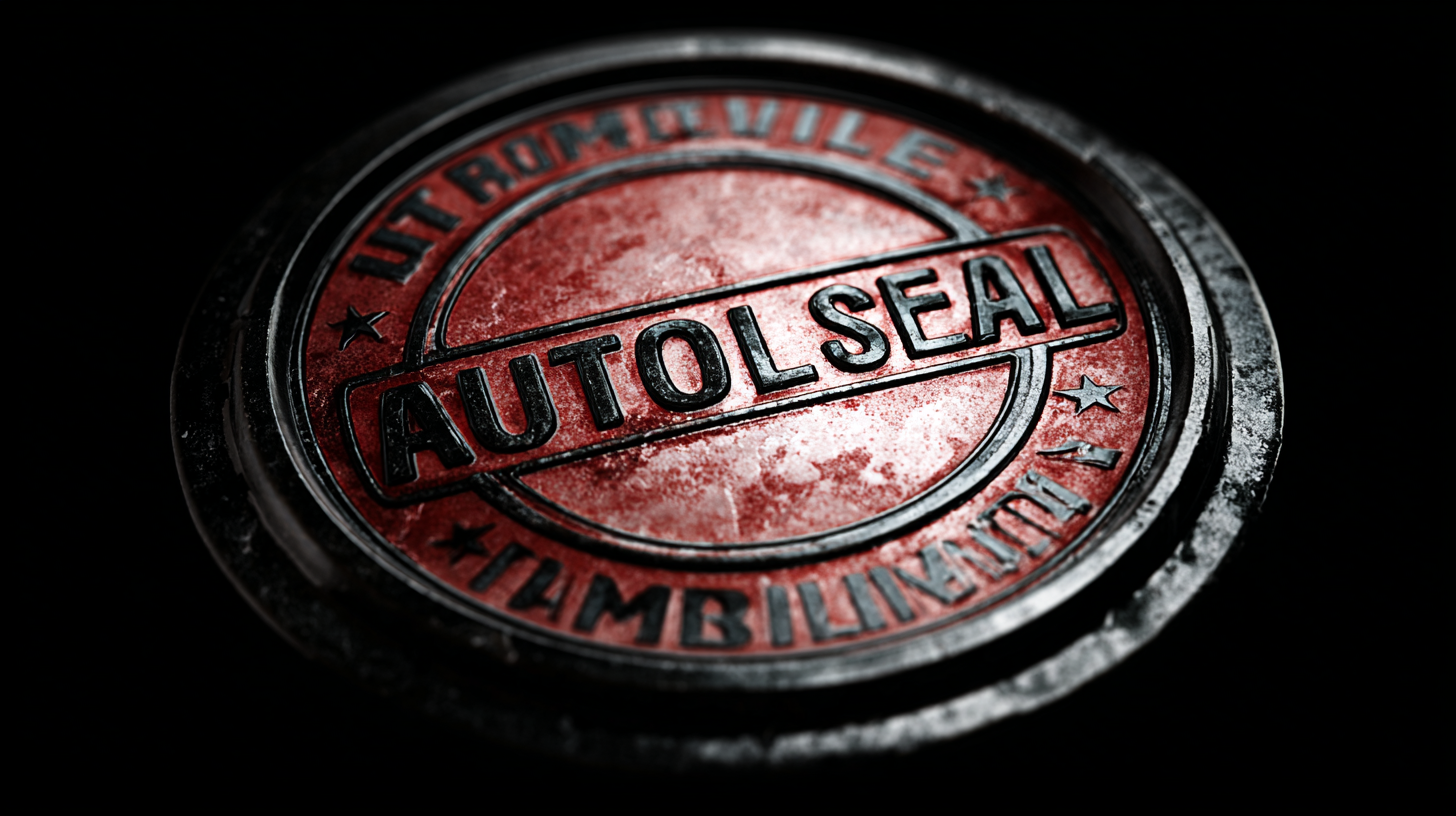Top Strategies for Choosing the Best Automobile Oil Seal for Your Vehicle
When it comes to maintaining vehicle performance and ensuring longevity, the choice of each component matters significantly, particularly the Automobile Oil Seal. According to the Global Industry Analysts, the automotive oil seal market is projected to reach approximately $1.2 billion by 2026, driven by increasing vehicle production and the rising demand for reliable sealing solutions.
Selecting the right oil seal is crucial not only for preventing oil leaks but also for enhancing the efficiency of the engine and reducing maintenance costs. Given the variety of materials and specifications available in the market, understanding the industry production standards becomes essential.
This blog will provide a comprehensive guide on the top strategies for selecting the best Automobile Oil Seal for your vehicle, ensuring optimal performance and reliability.
Choosing the Right Type of Oil Seal for Your Vehicle's Engine Performance
When selecting the right type of oil seal for your vehicle's engine, it's essential to consider the specific demands of your engine's performance. According to a report by the Society of Automotive Engineers, approximately 40% of engine failures can be attributed to inadequate sealing solutions, highlighting the critical role that oil seals play in maintaining engine integrity. Oil seals prevent leaks that can lead to oil starvation, resulting in increased wear and tear on engine components, which may ultimately reduce the vehicle's overall efficiency.
Different vehicles have varying requirements when it comes to oil seals. For instance, high-performance engines may necessitate specialized materials like silicone or fluorocarbon to withstand extreme temperatures and pressures. A study from the American Society for Testing and Materials indicates that oil seals made from these advanced materials can improve longevity and performance by up to 30%. Therefore, when choosing an oil seal, it’s crucial to assess not just the compatibility with your vehicle model, but also the conditions under which your vehicle operates to ensure optimal performance and longevity of the engine.
Key Factors to Consider When Selecting Automotive Oil Seals
When selecting automotive oil seals, several key factors should be considered to ensure optimal performance and longevity. First and foremost, you need to evaluate the compatibility of the oil seal material with the fluids and environmental conditions in which it will operate. Common materials include rubber, silicone, and PTFE, each offering different levels of resistance to temperature variations and chemical exposure. Your choice should align with the specific requirements of your vehicle to prevent any detrimental effects on the seal's performance.
Another important consideration is the oil seal's size and fitment. Accurate measurements are crucial, as a seal that is too loose can lead to leaks, while one that is too tight may cause undue wear or damage. It's essential to consult your vehicle's manufacturer specifications or seek professional advice to determine the correct dimensions for your oil seal. Additionally, examining the design of the seal, such as its lip configuration and overall build, can impact its efficacy in preventing oil leakage. By carefully assessing these elements, you can choose an oil seal that meets the demands of your vehicle, promoting reliability and efficiency.

How to Evaluate a Manufacturer's Reputation in Oil Seal Production
When selecting the best oil seal for your vehicle, evaluating a manufacturer’s reputation is paramount. A strong reputation often indicates a commitment to quality and reliability.
Start by researching how long the manufacturer has been in business and their experience in producing oil seals specifically. Longevity in the industry can suggest a proven track record and the ability to meet evolving automotive standards.
Look for manufacturers that have established themselves as industry leaders through consistent innovation and customer satisfaction.
Customer reviews and testimonials are invaluable tools in assessing a manufacturer’s reliability. Platforms such as automotive forums, review sites, and social media can provide insights from actual users regarding their experiences with specific products.
Additionally, consider certifications and industry affiliations, which can further validate a manufacturer's credibility. A trustworthy manufacturer will often possess quality certifications that meet or exceed international standards, ensuring their products are reliable under various conditions.
By conducting thorough research into the manufacturer’s reputation, you can make informed decisions and choose oil seals that will enhance your vehicle's performance and durability.
Identifying Material Quality for Optimal Oil Seal Durability
When selecting an oil seal for your vehicle, the quality of the material is paramount in determining its durability and effectiveness. According to a report by the Society of Automotive Engineers (SAE), high-quality rubber compounds, such as EPDM and Viton, outperform standard neoprene seals by offering superior resistance to extreme temperatures and chemical exposure. Testing has shown that seals made from these advanced materials can extend the lifespan of automotive components by up to 30%, significantly reducing maintenance costs over time.
Furthermore, the integrity of the seal's design is influenced by material selection. For instance, the American Society for Testing and Materials (ASTM) emphasizes the importance of compatibility between the oil seal material and the fluids it will encounter. Incompatible materials may degrade quicker, leading to leaks that can compromise engine performance. By investing in oil seals made from premium materials that meet industry standards, vehicle owners not only ensure optimal performance but also contribute to the longevity of their vehicles.
Tips for Maintaining and Replacing Oil Seals in Your Vehicle
Maintaining the oil seals in your vehicle is crucial for preventing leaks and ensuring optimal engine performance. Regular inspections should be part of your vehicle maintenance routine. Look for any signs of oil leakage around the seal area, as this can indicate wear and tear. If you notice oil spots on the ground where you park, it may be time to check your oil seals. Keeping the seals clean and free from debris can also extend their lifespan, as contaminants can cause deterioration over time.
When it comes to replacing oil seals, doing so at the right time is important. Many manufacturers recommend replacing oil seals during regular servicing or when other related parts, such as gaskets or bearings, are changed. This proactive approach helps to prevent future leaks and potential damage to the engine. Always opt for high-quality seals that match your vehicle's specifications to ensure a proper fit and prolonged durability. Additionally, consider consulting a professional mechanic for installation to guarantee that the seals are replaced correctly, minimizing the risk of leaks and ensuring your vehicle operates at peak efficiency.
